|
Genres, Themes, Actors, and Directors:
- Kidnapping
- Michael Caine Films
- Mind Control and Hypnosis
- Spies
Review:
Sydney J. Furie directed this adaptation of Len Deighton’s 1962 spy thriller, featuring an unnamed protagonist who was given the cinematic name “Harry Palmer” simply to call him something. Although I haven’t read Deighton’s novel, the synopsis on Wikipedia sounds duly meaty and complex — which would explain why this film feels the same way, narratively speaking. Perhaps appropriately, we’re never quite sure what’s going on, who is on which side, or what will happen next — which feels right for a spy thriller, though Furie’s infamous choice to frame nearly every shot in either a semi-obscured, askew, or severely foregrounded fashion is, to be honest, super-distracting.
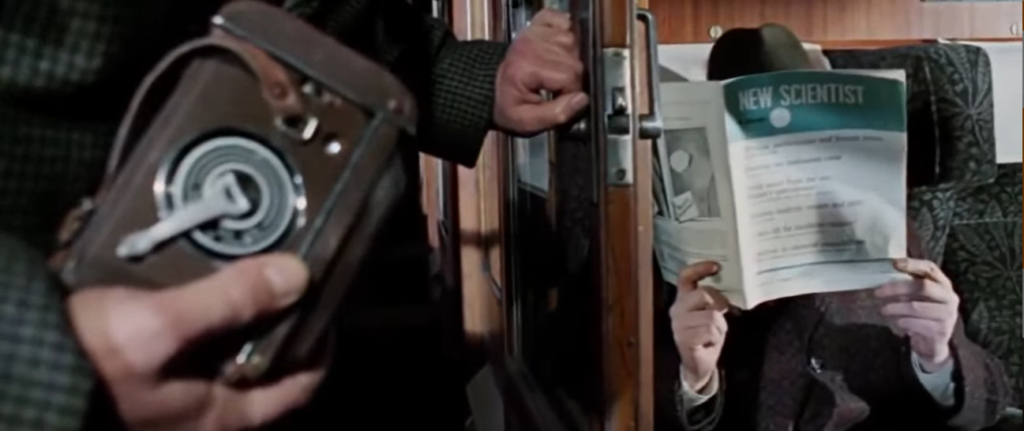
I found myself losing track of the storyline due to being preoccupied by wondering what weird and cool new shot would be coming next.
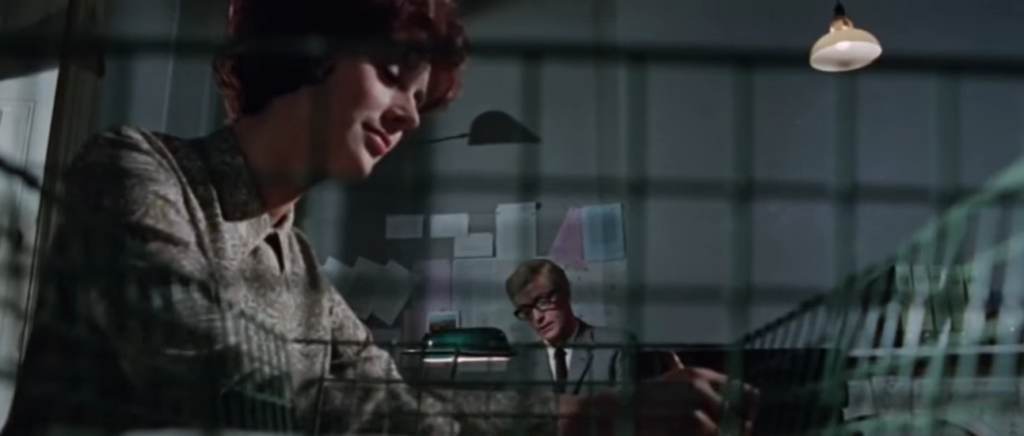
To be clear, I adore innovative camerawork — but watching The Ipcress File made me realize that it actually has its limits. To that end, an extended quote from Caine’s memoirs — as cited in TCM’s article — seems worth quoting here:
“Sid (Sidney Furie) … decided to shoot it as though the camera were someone else watching while hiding behind things. Thus there always seemed to be something between me and the camera, or else it would be very close and at an unusual angle, often shooting straight up my nose. Sid and [producer] Harry (Saltzman) had a lot of rows, with Harry’s temper living up to its reputation. I sometimes feared that he would have a heart attack, while the rest of the unit were hoping that he would — Sid, in particular. The climax to all these rows came one day when we were on location in Shepherd’s Bush, a rundown area of West London. The first I knew of it was when Sid came running round a street corner and knocked me flying. To my astonishment, I saw that he was crying. He stared at me for a moment and then screamed through his tears, ‘F*ck it, I’m off this picture,’ and with one bound jumped on a number 12 bus that was just pulling away from its stop, and disappeared in the direction of Oxford Circus.” Luckily, Furie was coaxed back to the set and completed the picture.
With all that said, this film is notable for giving Caine his second significant role (after Zulu), and he expertly embodies the cerebral, bespectacled protagonist with a criminal past.
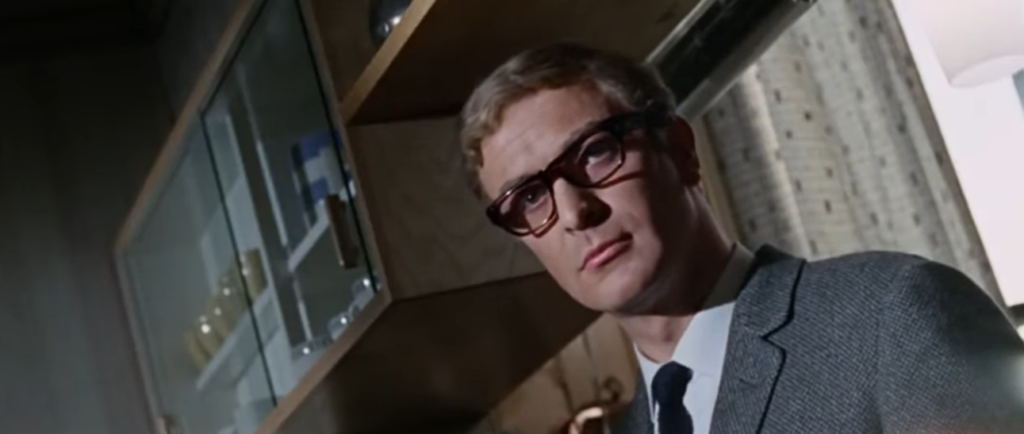
This flick remains worth a look, though it’s not must-see viewing.
Notable Performances, Qualities, and Moments:
- Michael Caine as Harry Palmer
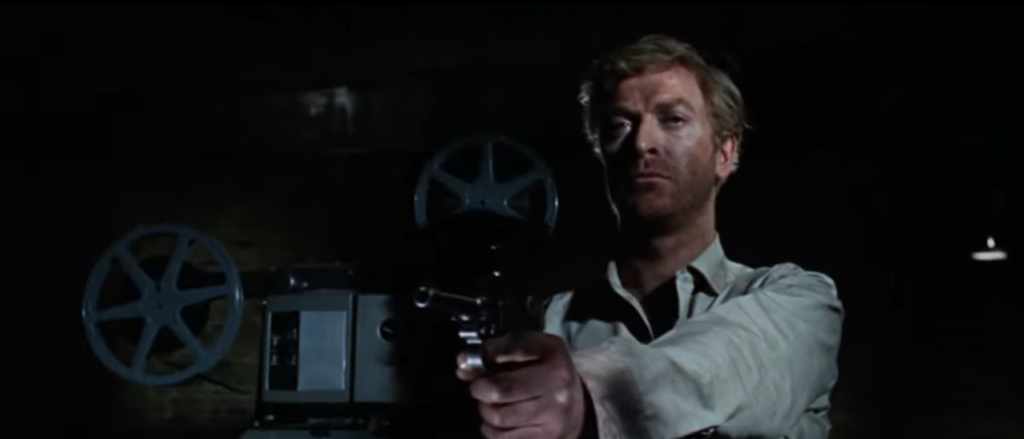
- Innovative (though perhaps overly so) cinematography and direction
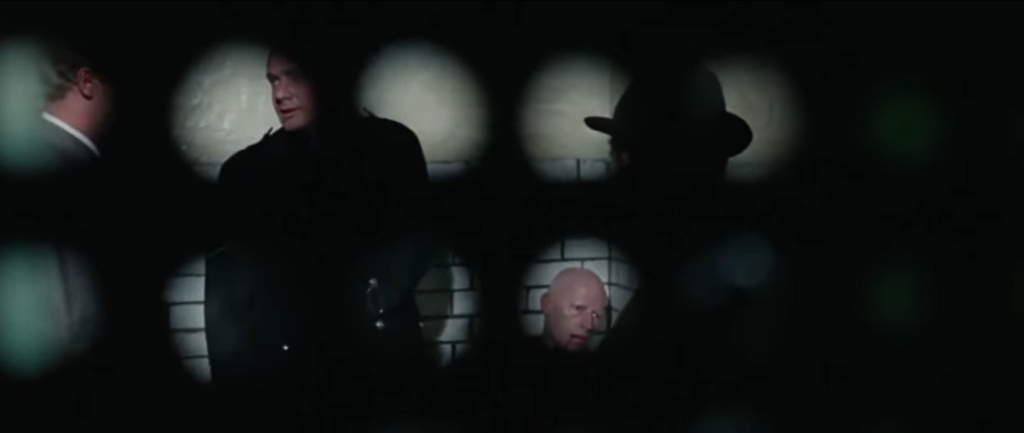
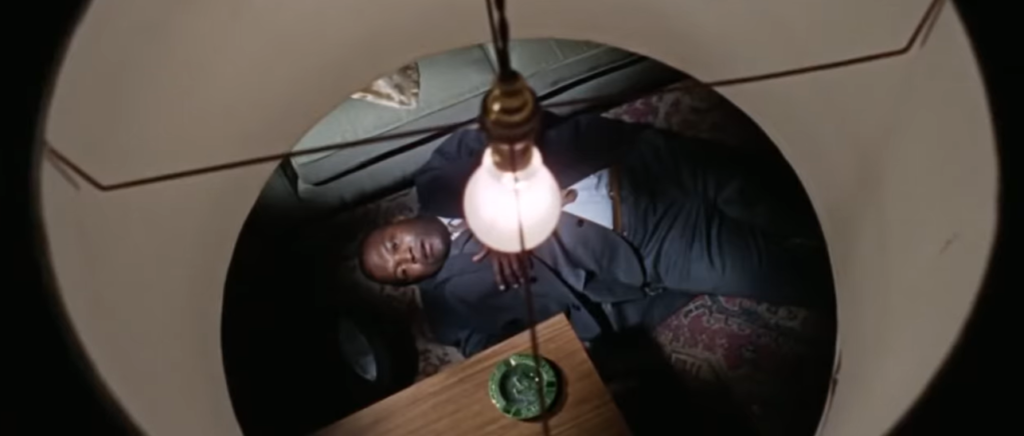
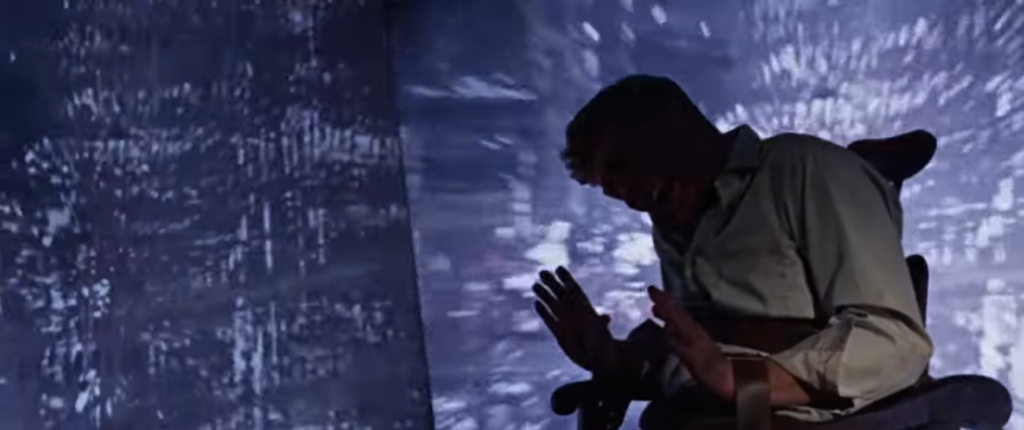
Must See?
No, though it’s recommended for those who enjoy complex spy thrillers.
Links:
|
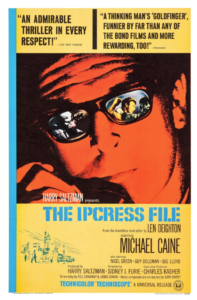







2 thoughts on “Ipcress File, The (1965)”
Rewatch 12/26/20. A once-must, mainly as a refreshing antidote to the bulk of the James Bond series… and for Caine’s performance.
Like ‘The Spy Who Came in from the Cold’, ‘TIF’ is a more realistic look at the spy world. Unlike the glamorous and largely respected Bond, Caine’s Palmer is more of a foot soldier among the elite in his field. He’s seen as more disposable and it’s doubtful how much respect he will gain even if he does prove himself. It’s a long road up to the level of his jaded superiors.
As Palmer, Caine is intriguingly indifferent to his position. He just seems to prefer it to whatever alternative might be available to him. He only really becomes genuinely concerned for himself when he fully realizes the world of duplicity he finds himself in. Until then, he maintains a cool disinterest which allows him a cocky sense of humor and a relaxation he can find in cooking and casual sex.
‘TIF’ has a marked intelligence that most of the Bond films sadly lack. It’s also the darkest of the Palmer films but with an inviting score by John Barry. Even this early in his career, Caine establishes himself as a real (and new kind of) movie star. The film’s complex conclusion is wonderfully edgy; tense – and dense with duplicity.
Superb film, wouldn’t change a single frame or directorial choice and infinitely superior to the recent UK TV remake.
Definitely a must as it’s one of Caine’s key films.